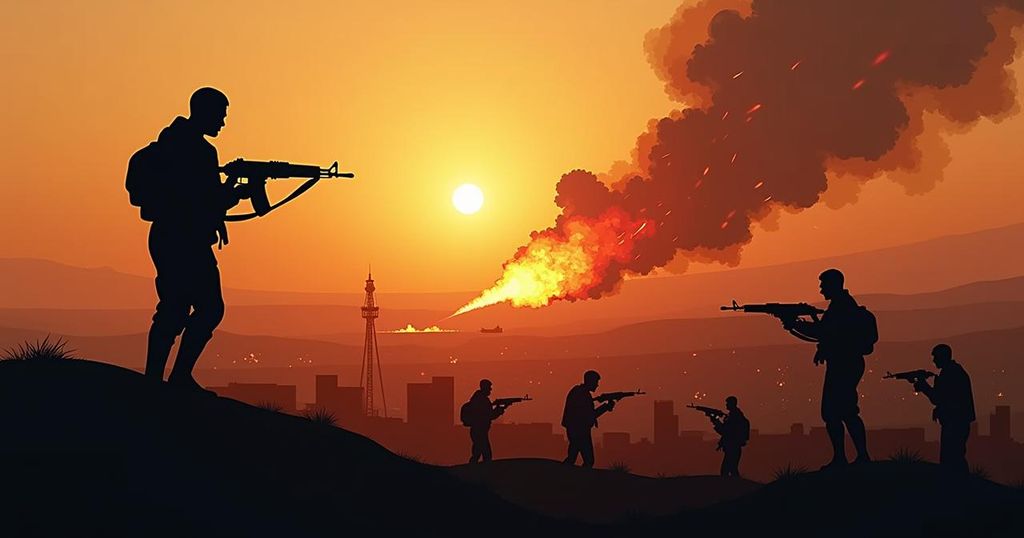Israel Promises Strong Retaliation Against Iran Amid Ongoing Middle Eastern Conflict

The Israeli government has vowed a “surprising” retaliation to Iranian missile attacks, with Defense Minister Yoav Gallant stating it will be robust and precise. Meanwhile, Lebanon faces a humanitarian crisis with over 1,400 deaths and 1.2 million displaced due to continued Israeli military actions against Hezbollah. Diplomatic conversations between U.S. President Biden and Israeli Prime Minister Netanyahu have highlighted concerns for proportional responses while the regional situation continues to escalate with rocket exchanges and civilian casualties.
The situation in the Middle East has escalated significantly as Israel prepares a “surprising” response to Iran following a missile attack. Israeli Defense Minister Yoav Gallant indicated that the retaliation will be characterized by its “powerful and precise” nature. Communications between the United States and Israeli leadership have resumed with President Biden’s recent phone call with Prime Minister Benjamin Netanyahu, although details regarding specific responses to Iran remain undisclosed. In the face of rising tensions, Lebanons humanitarian crisis grows, as Israeli military orders now affect a quarter of Lebanese territory, resulting in substantial civilian displacements. The ongoing conflict has seen fatalities surpassing 1,400 individuals, while over 1.2 million have been displaced since the commencement of intensified Israeli airstrikes and ground operations against Hezbollah. Hezbollah’s recent rocket attacks into northern Israel have marked the first civilian casualties in the region, raising concerns about further escalation. The U.S. administration continues to engage diplomatically, emphasizing the need for a response strategy that is measured and avoids exacerbating the current humanitarian crisis. Meanwhile, military and health institutions in Lebanon are facing extreme pressures, complicating already dire conditions for civilians affected by the conflict. Israel’s initiatives against Hezbollah are extensive, including over 1,100 airstrikes targeting the group, which Israeli officials state are intensifying and focused on eliminating threats. The prospect of a ceasefire remains vague, even as Biden stresses the necessity for a diplomatic route to bring relief to displaced populations in both Israel and Lebanon. An alarming situation is developing in Gaza as warnings from the UN address the potential collapse of essential humanitarian responses if the UN Relief and Works Agency is restricted from operating in critical zones of the region.
The Middle East has been engulfed in violence due to heightened tensions between Israel, Iran, and Hezbollah, exacerbating a humanitarian crisis particularly in Lebanon and Gaza. As a reaction to the Iranian missile strike, Israel has signaled a robust military retaliation, indicating a strategy that aims not just at immediate threats but also at potential long-term consequences. The humanitarian impact on Lebanon is profound, with mass displacement and casualties reported as a result of the ongoing military operations. The response from the United States remains a crucial point of diplomatic engagement, amid concerns over the ramifications of continued military clashes, particularly involving the civilian population.
In conclusion, the ongoing conflict in the Middle East poses severe challenges, with Israel poised to respond decisively to Iranian provocations while humanitarian conditions in Lebanon deteriorate sharply. The increasing loss of life and mass displacement underscores the need for urgent diplomatic measures that can alleviate the suffering of civilians affected by these hostilities. The situation remains fluid, and as military actions continue, the prospect of a stable resolution seems increasingly distant.
Original Source: www.cnn.com






